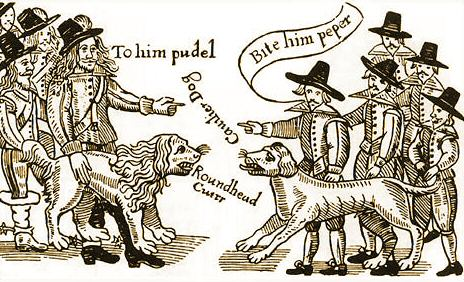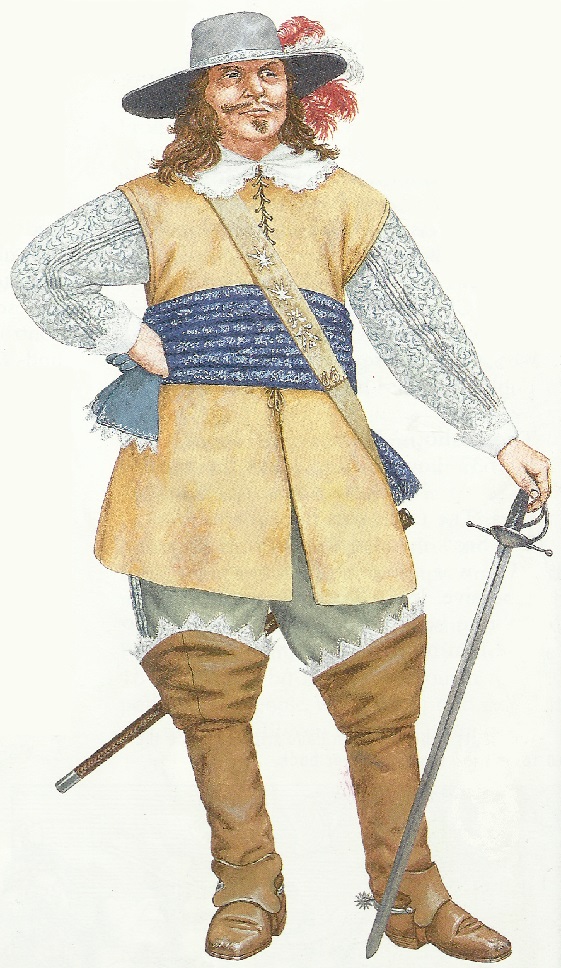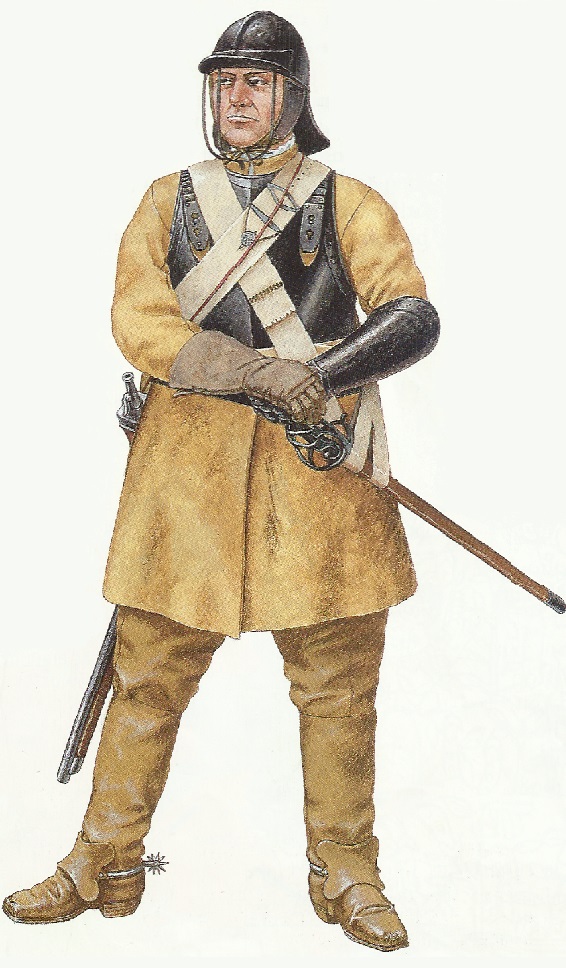
A Time To Decide

Introduction
It is important not to overstate the idea of 'a nation taking sides' when the Civil War broke out in 1642. Most poor people had to fight for whichever side their landlord supported. Some people did not know or care about the issues; in 1644, when an army patrol near Marston Moor told a shepherd that the king and Parliament were at war, he said: 'Whaat! Has them two fallen out then?'
Many 'people-of-substance' tried NOT to commit themselves – some families put a son in both sides so they would come out well whoever won. Many others, however, felt they had to choose between the 'Cavaliers' on the king's side, and the 'Roundheads' who supported Parliament. Should they take up arms (fight) for the king or for Parliament?
So the nation was divided. Friends and family often disagreed with each other. It was time to decide.
The pictures below show typical representations of a Cavalier (left) and a Roundhead (right) as we imagine them today. In real life, things were not so clear cut. Few people dressed like this, and people often found it difficult to decide which side to support.
After you have studied this webpage, answer the question sheet by clicking on the 'Time to Work' icon at the top of the page.

Cavaliers versus Roundheads – a woodcut from the time.
Links:
The following websites will help you research further:
Roundheads versus Cavaliers:
• Detailedwikipedia webpages on the
Cavaliers and
Roundheads •
Two recruitment posters -
good idea - why not try to make your own?
• A silly song from
Horrible Histories - fun!
1 A Royalist (Cavalier) might:
• believe in the Divine Right of Kings;
• agree that Charles had the right to take taxes such as ship money and grant monopolies when he wanted;
• support the bishops, and agree with Archbishop Laud's reforms in the Church of England;
• think people ought to obey the king, and that it was wrong to go to war against him.

2 A Parliamentarian (Roundhead) might:
• believe that Parliament should make the laws and govern the nation;
• believe in the principle of no taxation without Parliament's agreement;
• hate the bishops and want Puritan reforms to make the Church of England more Protestant;
• have no personal loyalty to the king, and believe that there was no need to obey the king if he was wrong.
